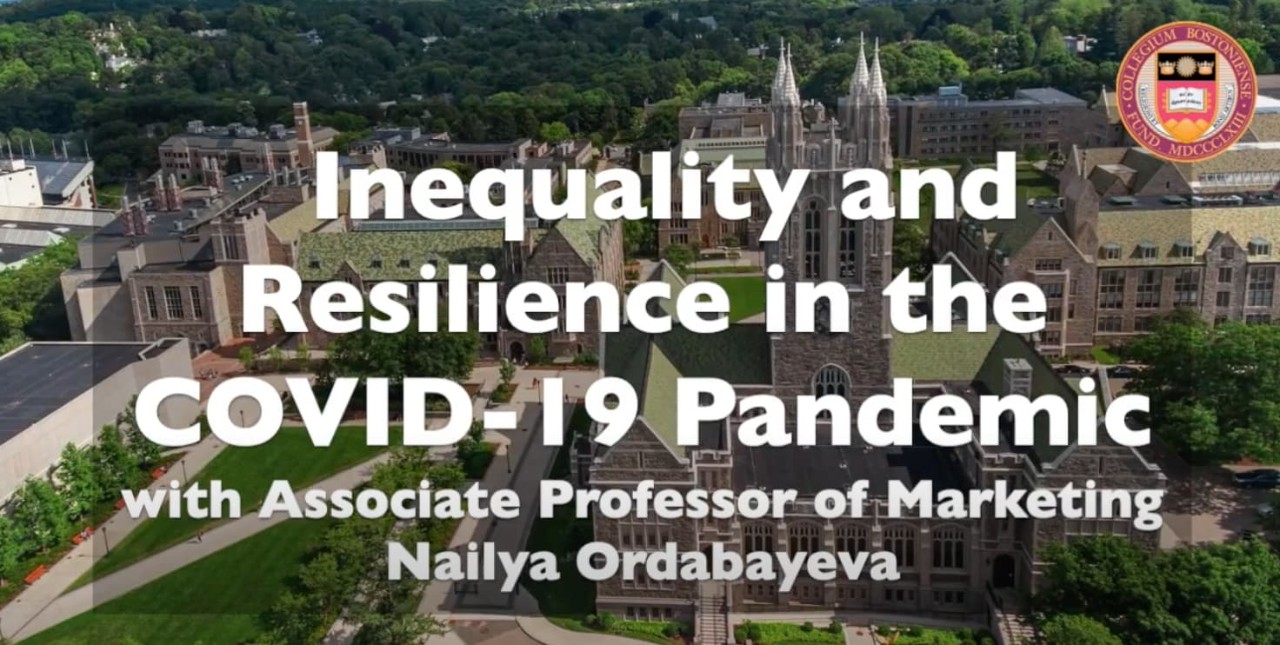Marketing Professor Nailya Ordabayeva discusses how to make society more resilient, in time for the “next disaster”
Who will we be, after COVID? Will our social structures be more resilient in the post-pandemic future? Even with a long, COVID winter ahead of us, many are grappling with these questions about the after times. One of them is Carroll School of Management Associate Professor of Marketing Nailya Ordabayeva, who has contributed both academic research and public commentary to the issue of economic inequality.
This past June, Ordabayeva co-authored an article in Behavioral Scientist, pointing to the brutal “fault lines”—of age, race, gender, and socioeconomic class—that the coronavirus has exposed in our economic structures. Rather than work to return our economy to “the way things were,” U.S. policymakers should seek to “proactively restructure society, so that we are all more resilient the next time disaster strikes,” she argued together with a cross-disciplinary group of 10 social scientists.
In an interview via Zoom with the Carroll School communications staff, Ordabayeva, who is continuing her research during a sabbatical this fall, noted major changes in public attitudes. “For decades, people were surveyed about how problematic or ingrained inequality was in society, and for decades, the sentiments did not change. You didn’t see overwhelming support for government action to reduce inequality,” she said. “But then the coronavirus struck, hitting low-income wage earners and the uninsured particularly hard, and the change in public sentiment has been striking.” Up to 80 percent of the public is now supporting action to stem the inequalities, she reported.
Listen to Ordabayeva as she discusses the road to resilience, in the following two-minute Zoom video produced by Rachel Bird, a Carroll School content development specialist:



